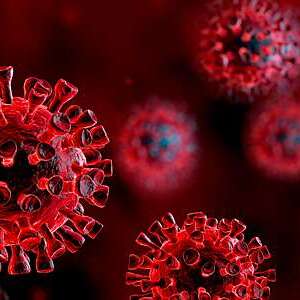Slovenian PM urges EU to prepare for fourth wave of COVID-19

In the near future, an increase in the number of infections with the Indian strain of coronavirus (the “delta” variant) is inevitable in Europe. This was stated by Prime Minister of Slovenia Janez Jansa, speaking at the plenary session of the European Parliament in Strasbourg, reports Delo.
He urged EU countries to be prepared for a possible fourth wave of the pandemic. “We are following the resumption of public life very closely, but also preparing for a potential fourth wave, as we do not want it to challenge us in the fall, as it did last year,” Jansa said (quoted from 24Ur).
According to the premier, the fourth wave will "paralyze" Europe again, and the authorities should focus on how to prepare for a potential crisis. At the same time, Jansha said, he is optimistic, as he believes that the European vaccination strategy is working.
WHO says covid-19 situation is 'stabilizing at a very high level' Society
On the eve of Jansa, speaking at the State Assembly of Slovenia, he said that the next wave of coronavirus could begin in the country at the end of July. According to him, if by the end of summer it is not possible to vaccinate 70% of the population, then "everything will be closed in the fall."
The French authorities also warned about the risk of a fourth wave at the end of July. “Over the past week, the epidemic is gaining momentum again. <...> The delta variant, which is especially contagious, is gaining popularity very quickly,” said Prime Minister Gabriel Attal.
On July 2, the HEAD of the European Commission, Ursula von der Leyen, said that EU authorities are concerned about the spread of the “delta” variant of SARS-CoV-2: “We see that the new variant is much more common than others, the infection rate is growing, and we know that it is will grow". The European Center for Disease Control (ECDC) estimates that by the end of August, the Indian strain will account for 90% of infections in the EU.
Video for this news
The European Commission announced the start of the third wave of coronavirus in March 2021. According to the World HEALTH Organization's special envoy for COVID-19, David Nabarro, its risk arose due to an insufficient response to the pandemic: EU countries failed to build the necessary infrastructure to combat coronavirus in the summer months of 2020, after the end of the first wave, Nabarro said. The second wave of the pandemic came in the fall of last year.
Read together with it:
- The Russian Ministry of Agriculture proposes extending veterinary regulations until 2032.The extension includes regulations for the prevention and eradication of diseases such as bradsot (Clostridium septicum), trichinosis (Trichinella), blackleg (Clostridium chauvoei), and porcine reproductive and respiratory syndrome (PRRS). The proposed changes stipulate the following new deadlines: for bradsot and trichinosis - from March 1, 2......
- A fire at the Merci Agro Sakhalin pig farm killed 1,500 pigs, but pork production will not be affected.Deputy Minister of Agriculture and Trade of the region Inna Pavlenko noted that other pig farms will help compensate for the loss. Merci Agro Sakhalin plans to restore its capacity and livestock, which will help avoid a pork shortage on the local market. The restoration will be funded by insurance payments, and veterinarians have already analyzed the condition of the remaining animals and determin...
- An HSE expert reported on the "evolution of inequality" in access to healthcare.An HSE researcher analyzed Russians' access to healthcare over a ten-year period. In 2021, the influence of financial factors became noticeable for the first time: low income reduces the likelihood of visiting a DOCTOR.Over the ten years from 2011 to 2021, the number of Russians requiring medical care but not receiving it remained virtually unchanged, according to a study by Lyudmila Zasimova, hea...
- He crawled to the icon with prayer. The true story of a man who overcame drug addiction.Alexander Ovchinnikov. Topic News. Our project's hero was a drug addict for many years. The thought that this was a dead end never left him, but his addiction proved stronger. One day, when he could no longer walk, he crawled to an icon in prayer. This became his first step toward a new life. Today, he heads a charity center that helps those who have given up hope and are unable to quit ALCOHOL an...
- Колумбия: При экспорте скота сертификация и прослеживаемость больше не являются необязательнымиВысококачественное животноводство, особенно при экспорте, требует сертификации и прослеживаемости. Это необходимые условия для выхода и конкуренции на многих международных рынках, а также на некоторых всё более требовательных внутренних рынках. Колумбийское животноводство не является исключением из этих правил, и, хотя предстоит ещё многое сделать, всё большее число ферм и компаний внедряют эти ме...


